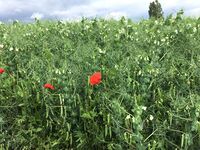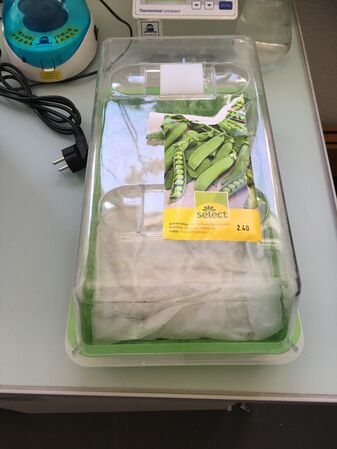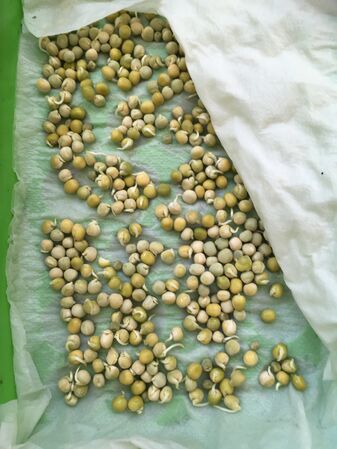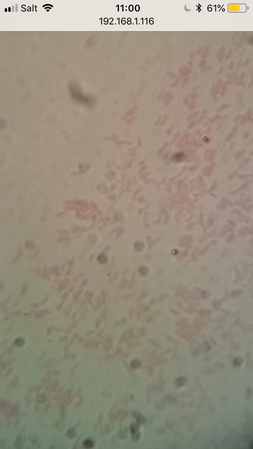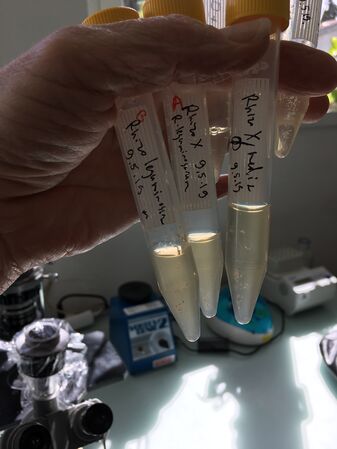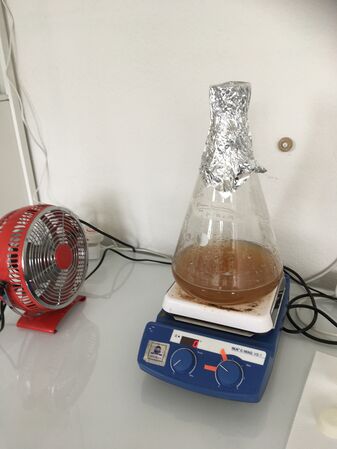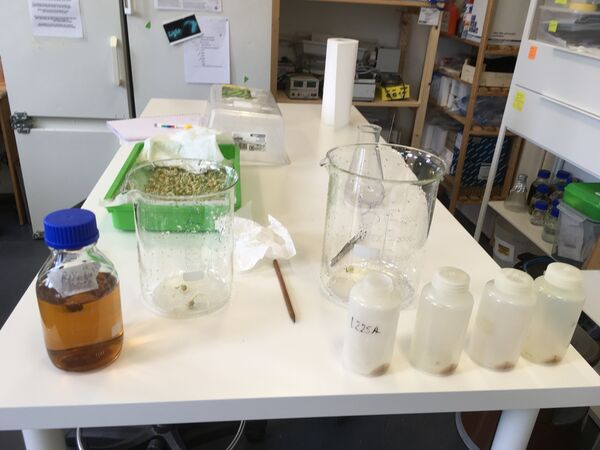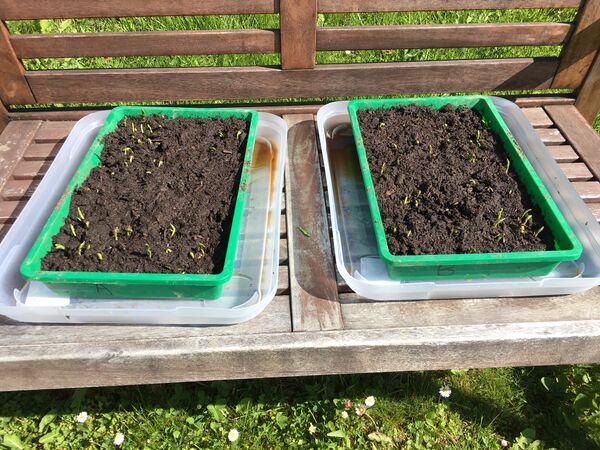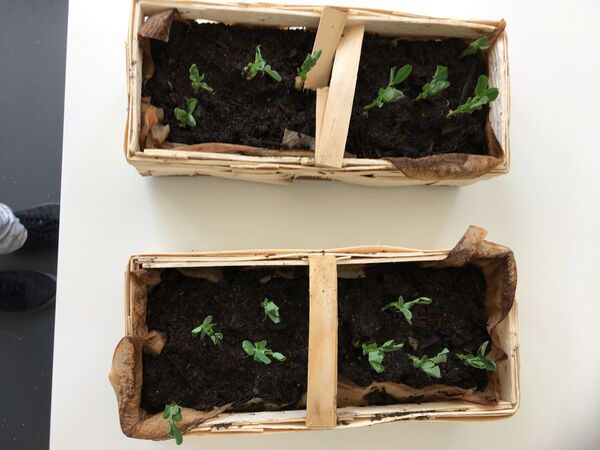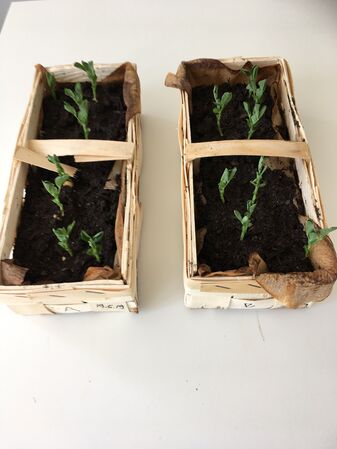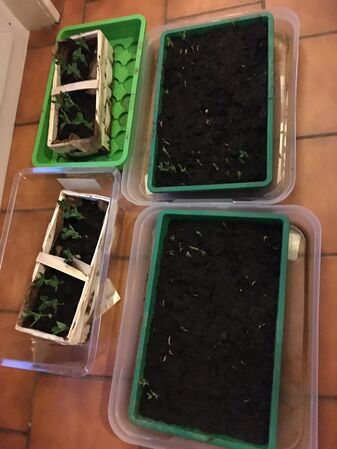Difference between revisions of "Urban garden"
| Line 1: | Line 1: | ||
[[File:Hackuarium_logo15.png|100px|thumb]] | [[File:Hackuarium_logo15.png|100px|thumb]] | ||
The second year of the urban garden project began in spring, 2019. | The second year of the urban garden project began in spring, 2019. | ||
| + | |||
| Line 6: | Line 7: | ||
As mentioned in the [http://wiki.hackuarium.ch/w/Urban_gardens_with_rhizobial_bacteria previous wiki page around this project], symbiotic rhizobial bacteria are used regularly by big agrobusiness 'farmers' - providing incredible yields. <br> | As mentioned in the [http://wiki.hackuarium.ch/w/Urban_gardens_with_rhizobial_bacteria previous wiki page around this project], symbiotic rhizobial bacteria are used regularly by big agrobusiness 'farmers' - providing incredible yields. <br> | ||
| + | Here is an inspirational image, also, of a local field of peas! | ||
| + | [[File:DengesPeaField.JPG|200px|thumb]] | ||
=Key Aims= | =Key Aims= | ||
| Line 33: | Line 36: | ||
File:Inlab24may19.JPG | File:Inlab24may19.JPG | ||
File:Inlab24may19b.JPG | File:Inlab24may19b.JPG | ||
| + | File:Plantsavailableforparticipants.JPG | ||
| + | </gallery> | ||
| − | < | + | Even though we had quite a disappointment from the plants in the garden, it was clear in lab conditions the two sets, A and B grew identically... <b> |
| + | In the garden, set B was slightly worse off... However, for both sets about 85% of all plants died! <br> | ||
| + | Therefore, this year's trial really depends greatly upon participants, who got only x2 or x4 plants of each set!! | ||
| + | <br> | ||
| + | The first plants were given to them on 28may19, the same day the image of the Denges Pea Field, at the top, was taken! <br> | ||
=Toward a more sustainable Hackuarium?= | =Toward a more sustainable Hackuarium?= | ||
If we get strong data, next year will probably be much more professional, and maybe even provide funding for the lab, perhaps... <br> | If we get strong data, next year will probably be much more professional, and maybe even provide funding for the lab, perhaps... <br> | ||
| + | |||
| + | |||
| + | Help for edits/translation/ etc. very welcome, as this is all a work in progress! | ||
| + | <br> | ||
| + | |||
| + | [[Category:Work In Progress]] | ||
Revision as of 09:44, 2 June 2019
The second year of the urban garden project began in spring, 2019.
Inspiration
As mentioned in the previous wiki page around this project, symbiotic rhizobial bacteria are used regularly by big agrobusiness 'farmers' - providing incredible yields.
Here is an inspirational image, also, of a local field of peas!
Key Aims
With this experiment, we hope to find out if, in ordinary 'urban garden' settings, such symbiotic associations between plant roots and bacteria will also provide better harvests of delicious peas!
To note: None of us are experts in this field, though we have had some advice from at least one, who mainly worked with alfalfa and its symbionts, and we are learning by doing!
Open Science
We want to encourage open science, and are simply using a google drive to collect data to start this second year...
(This can be strongly criticised, especially as huge populations, for instance in China, do not have this resource! We hope to work toward a better solution and thank you for any input!)
Gallery
Here are some initial images of the cultures, inoculation and growth of plants.
To note: groups of plants marked A and B were given to participants, with no indication as to which were inoculated and which were mock inoculated!
Even though we had quite a disappointment from the plants in the garden, it was clear in lab conditions the two sets, A and B grew identically...
In the garden, set B was slightly worse off... However, for both sets about 85% of all plants died!
Therefore, this year's trial really depends greatly upon participants, who got only x2 or x4 plants of each set!!
The first plants were given to them on 28may19, the same day the image of the Denges Pea Field, at the top, was taken!
Toward a more sustainable Hackuarium?
If we get strong data, next year will probably be much more professional, and maybe even provide funding for the lab, perhaps...
Help for edits/translation/ etc. very welcome, as this is all a work in progress!

